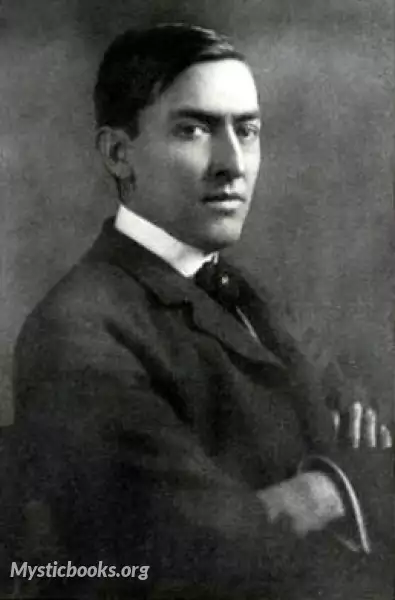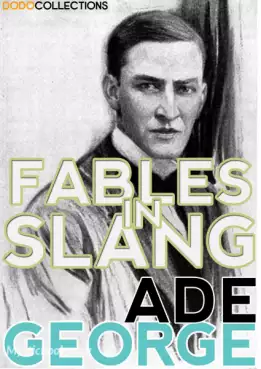
Timeline
Title
Country/Nationality
George Ade
George Ade was an American writer, syndicated newspaper columnist, and playwright who gained national notoriety at the turn of the 20th century with his "Stories of the Streets and of the Town", a column that used street language and slang to describe daily life in Chicago, and a column of his fables in slang, which were humorous stories that featured vernacular speech and the liberal use of capitalization in his characters' dialog.
Ade's fables in slang gained him wealth and fame as an American humorist, as well as earning him the nickname of the "Aesop of Indiana". His notable early books include Artie Pink Marsh Fables in Slang the first in a series of books; and In Babel a collection of his short stories. His first play produced for the Broadway stage was The Sultan of Sulu, written in 1901. The Sho-Gun and his best-known plays, The County Chairman and The College Widow, were simultaneously appearing on Broadway in 1904. Ade also wrote scripts and had some of his fables and plays adapted into motion pictures.
During the first quarter of the 20th century, Ade, along with Booth Tarkington, Meredith Nicholson, and James Whitcomb Riley helped to create a Golden Age of literature in Indiana.
George Ade was born in Kentland, Indiana, on February 9, 1866, to John and Adaline Ade. George was the second youngest of the family's seven children. George's father served as the Newton County, Indiana, recorder, and was also a banker in Kentland; his mother was a homemaker. George enjoyed reading from an early age, but he disliked manual labor and was not interested in becoming a farmer. Although he graduated from Kentland High School in 1881, his mother did not think he was ready for college. As a result, Ade remained in high school for another year before enrolling at Purdue University in 1883 on scholarship.
Ade studied science at Purdue, but his grades began to falter after his first year when he became more active in the college's social life. Ade also developed an interest in the theater and became a regular at the Grand Opera House in Lafayette, Indiana. In addition, he joined the Sigma Chi fraternity. Ade also met and began a lifelong friendship with cartoonist and Sigma Chi fraternity brother John T. McCutcheon. Ade graduated with a bachelor of science degree from Purdue in 1887. He briefly thought about becoming a lawyer, but abandoned the idea to pursue a career in journalism.
Ade fell into a coma after suffering a heart attack and died on May 16, 1944, in Brook, Indiana, at the age of seventy-eight. His remains are interred at Fairlawn Cemetery in Kentland, in Iroquois Township, Newton County, Indiana.
Ade is considered a humorist, satirist, and a moralist with keen observational skills, as well as and "one of the greatest writers of his time." Ade's writings reached the height of their popularity in the 1910s and 1920s. Along with the works of other Hoosier writers, such as James Whitcomb Riley, Booth Tarkington, and Meredith Nicholson, among others, Ade's writing was part of the Golden Age of Indiana Literature of the late nineteenth and early twentieth centuries. His fables in slang gained him wealth and fame as an American humorist, in addition to earning him the nickname of the "Aesop of Indiana." In more recent decades, his works have been largely forgotten.
The best known of his plays that were produced on Broadway are The County Chairman and The College Widow, which were also adapted into motion pictures. While the presentations of his plays and musical comedies increased his wealth and international renown, Ade's legacy includes numerous newspaper columns, magazine articles, essays, and books that describe his perspective on American life in the late nineteenth and early decades of the twentieth century.
Ade bequeathed his library, manuscripts, and papers, as well as most of his art objects to Purdue University. Following Ade's death, ownership of Hazelden, his former home in Newton County, Indiana, was transferred to Purdue University, who relinquished the property to the State of Indiana when it could no longer afford its upkeep. The State of Indiana, unable to maintain the home, turned it over to Newton County, Indiana, officials. Ade's remaining land was distributed among his relatives. In 1962 the George Ade Memorial Association raised funds to acquire, renovate, and restore the home. Hazelden was listed on the National Register of Historic Places in 1976. The Association disbanded in 2018, and, as of 2019, Newton county officials are assessing the home's condition and plans for restoring it for use as a public historic site and events venue.
Books by George Ade

Fables in Slang
A delightful read and an interesting look at America at the beginning of the 20th Century. In terms of prejudice, class, and injustice generally, it's fascinating to see what's changed and what hasn't. These stories are collected from Ade's newspaper...